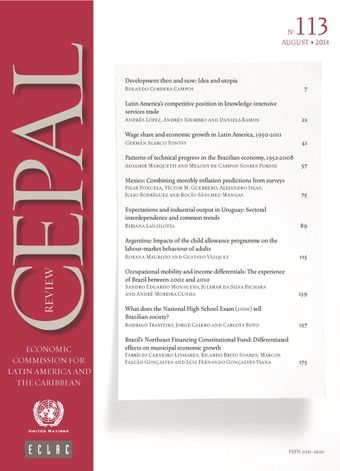-
Occupational mobility and income differentials: The experience of Brazil between 2002 and 2010
- Source: CEPAL Review, Volume 2014, Issue 113, Dec 2014, p. 139 - 155
- Spanish
-
- 31 Dec 2014
Abstract
Since the start of the twenty-first century, the Brazilian economy has experienced a growth cycle with characteristics unlike those of its previous historical experience, combining growth, macroeconomic stability and distributive progress. In this context, the study aims to analyse the factors and distributive effects of occupational mobility in Brazil, based on data obtained from the Monthly Employment Survey. The results suggest that: (i) mobility has been used in Brazil as a way to raise wages, even when it involves a drop in socio-occupational status; (ii) nonetheless, the wage increase obtained by changing job or occupational segment is smaller for poorer workers than for wealthier ones; and (iii) consequently, mobility helps to increase income, but it also tends to widen wage gaps.
© United Nations





